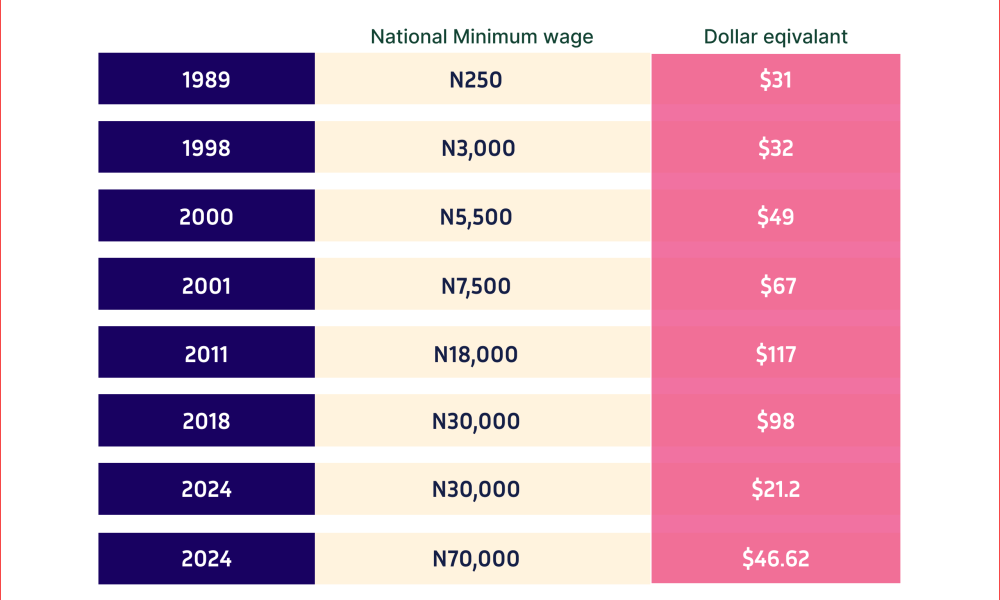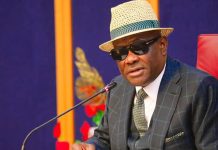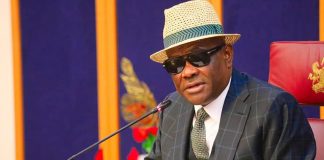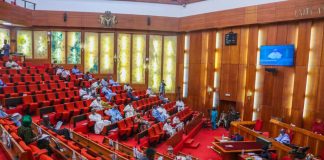🌿 Ruzu Non-Alcoholic Herbal Bitters
Ruzu Non-Alcoholic Herbal Bitters is a natural health supplement specially formulated to:
- ✅ Promote general wellness
- ✅ Detoxify the body
- ✅ Support the treatment of various ailments
Made from a powerful blend of 100% organic and medicinal herbs, Ruzu is completely alcohol-free, making it ideal for:
- 👪 All age groups
- 🌱 Health-conscious individuals
- 🌿 Anyone seeking non-alcoholic herbal remedies
Whether you're looking to boost your vitality, cleanse your system, or support healing the natural way, Ruzu Bitters offers a trusted herbal solution.
Following the meeting between President Bola Tinubu and the leadership of the Nigerian Labour Congress, the federal government agreed with the union to increase Nigeria’s minimum wage to N70,000.
This is an increase of 133 per cent from N30,000 which has been operational since 2018. The president also promised to create a plan to assist the private sector and the sub-nationals to pay the minimum wage.
The bill for this new minimum wage was transmitted to the National Assembly which speedily passed through the first, second and third reading within hours. Aside from increasing the national minimum wage, the bill will also reduce the period for periodic review from five years to three years.
The backstory of minimum wage
On Monday, June 3rd, the NLC and the Trade Union Congress embarked on a nationwide strike to press for increment of the Nigerian minimum wage.
The union’s proposal was for the federal government to pay N615,000 as a new minimum wage, which is 1950 per cent higher than N30,000. However, several meetings between the unions, the federal government, and the National Assembly have continuously ended in deadlock.
RipplesMetrics analyzed that the minimum wage was reviewed about seven times between 1981 and 2024. However, findings showed that while there was an increase over the years, the wage decreased when compared on a global scale, especially to the dollar exchange market rate.
READ ALSO:RipplesMetrics… Fuel scarcity: How Nigerian govt subsidised cost of fuel in the two decades
Can N70,000 suffice now?
According to data published by the States Fiscal Transparency, Accountability, and Sustainability (SFTAS) Performance Assessment, there are about 858,668 civil servants in Nigeria. If each of these workers were paid a minimum wage of N70,000, the total wages paid in a month would amount to N60.107 billion.
On the dollar comparison, the N70,000 minimum wage is equivalent to $46.62, according to the CBN exchange rate of N1534.56/$1. This amount is lower than the dollar equivalent of the minimum wage between 2000 and 2018.
On an economic outlook, if an average Nigerian earns N70,000 monthly, he may use more than 90 per cent of his wages to feed in a month, assuming he has no other source of income.
Data from the National Bureau of Statistics shows that as of May 2024, Nigerians spend N1,041 to eat a healthy diet. This means that if a Nigerian were to eat twice a day for 30 days of a month, he would be spending N62,460 on feeding.
Also in transportation, the average fare paid by commuters for bus journeys within the city per drop is N976.08 as of May 2024. This can translate to spending N39,043 monthly if an average working Nigerian takes two buses to his work for 20 days a week. More than 50 per cent of his wages would have been exhausted on transportation.
However, while there are still rising trends in economic indices, as regards the inflation rate, dollar exchange, transportation and other socio-economic parameters, the minimum wage might become insufficient for an average Nigerian if these indices do not drop in subsequent months.
By: James Odunayo
The post RipplesMetrics: The economic reality of Nigeria’s N70,000 new minimum wage appeared first on Latest Nigeria News | Top Stories from Naomisophyblog.
















